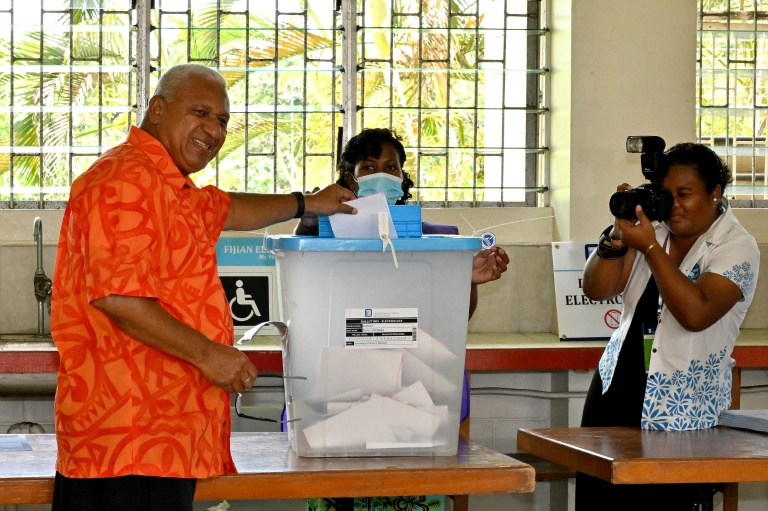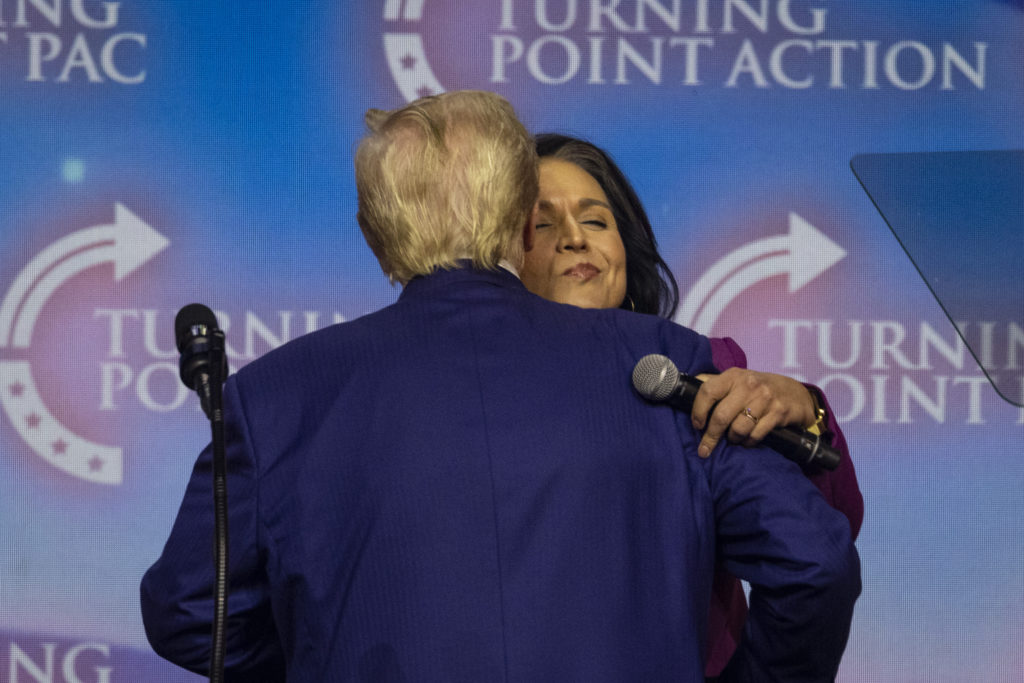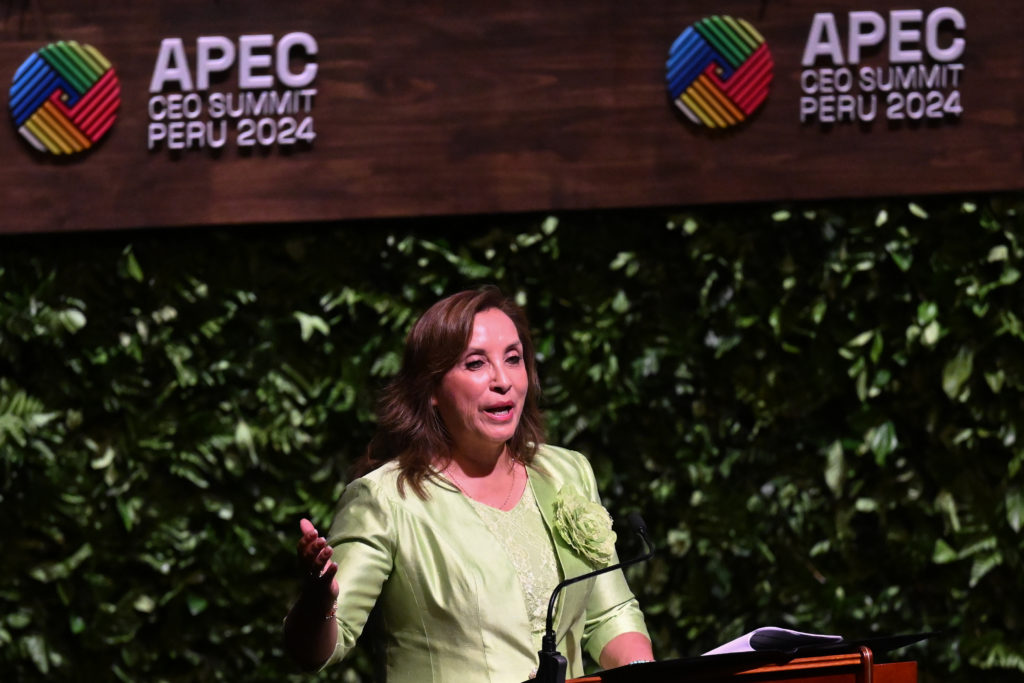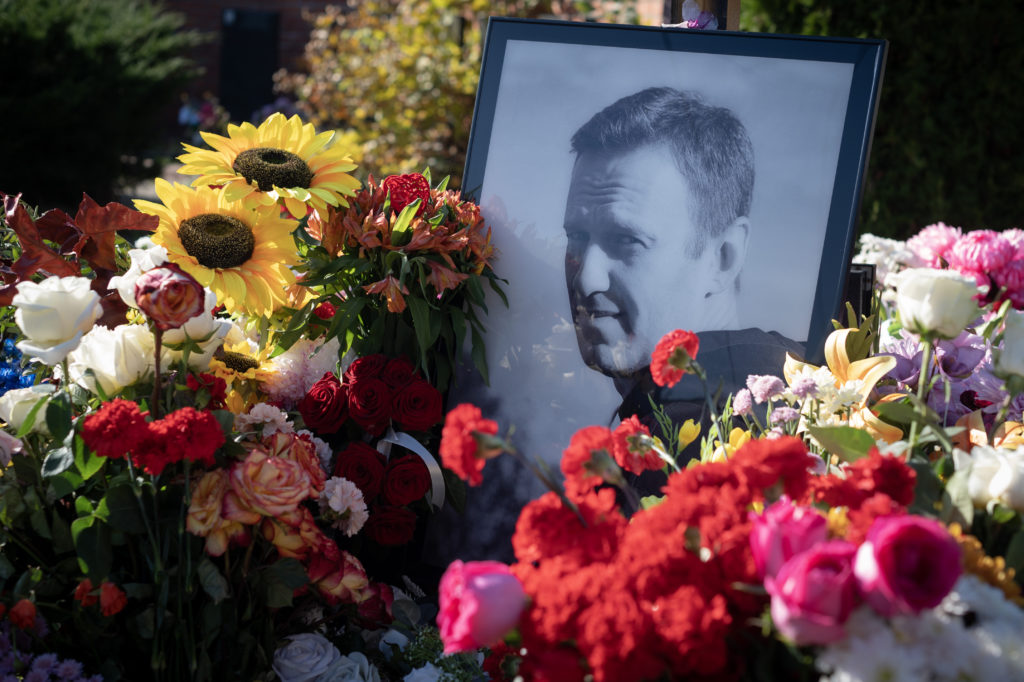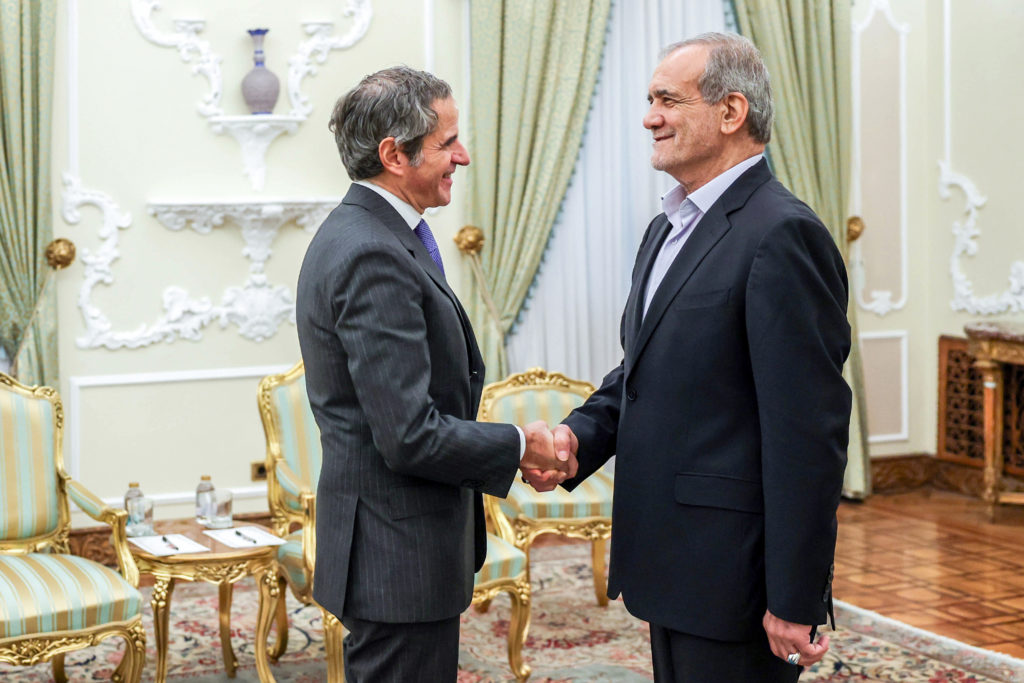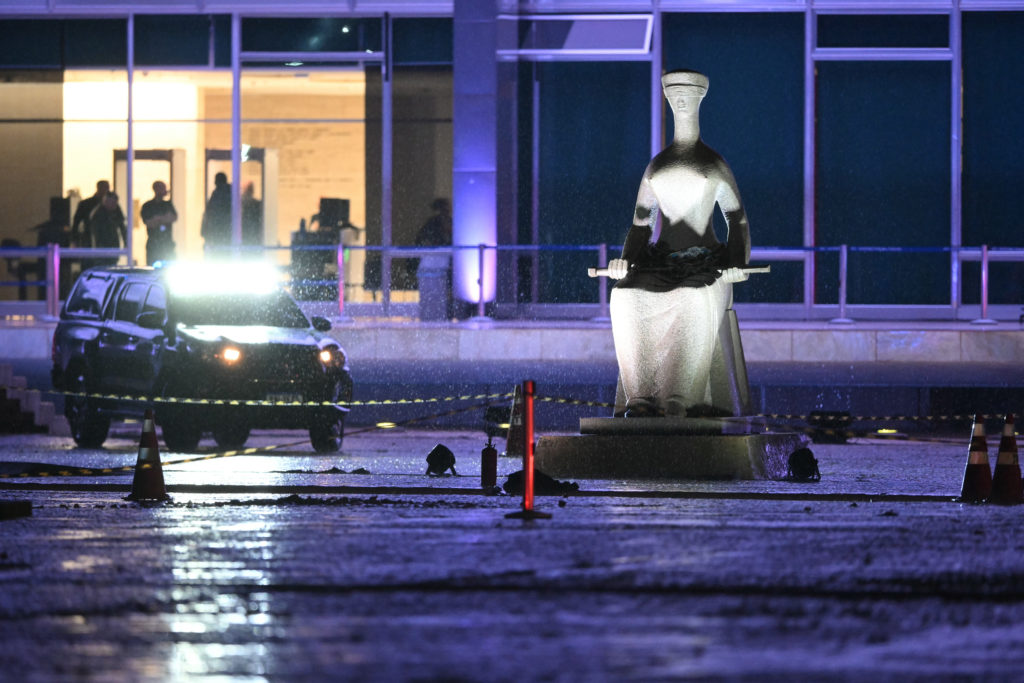Fiji's Prime Minister Frank Bainimarama vowed to respect the outcome of the election that could end his 16 years in power and return a rival ex-coup leader to office
Fijian Prime Minister Frank Bainimarama vowed to respect the outcome of Wednesday’s election, as polls closed in a vote that could end his 16 years in power and return a rival ex-coup leader to office.
Bainimarama, 68, seized control of Fiji in a 2006 putsch, but legitimised his grip on power with election wins in 2014 and 2018.
Standing in the way of Bainimarama’s third elected term is his chief political rival, Sitiveni Rabuka, a 74-year-old former military commander nicknamed “Rambo” after leading two coups in 1987.
The vote is seen as a test of the nation’s fledgling democracy.
Asked whether he would accept the outcome, win or lose, Bainimarama said “of course” as he cast his ballot in the capital Suva with his granddaughter in tow.
He then lashed out at reporters, suggesting they ask “better questions.”
Fiji now faces a nervous wait for a winner to be declared — ballots must be tallied from remote islands and highland villages, and the country’s complicated counting system could further slow things down.
The final count is not expected for at least two days, although provisional returns could come more quickly.
Rabuka said he would readily concede defeat if beaten, and Bainimarama should do the same.
“I think he will not. So I’m hoping for a flood of votes in our favour, so that it makes any attempt at that course futile,” he said.
“We cannot live forever, we cannot rule forever, so successions from an opposition party should be accepted.”
Blake Johnson from the Australian Strategic Policy Institute said any arguments about the result would likely be dealt with through the courts, rather than another coup.
“Should Rabuka win, this will be Fiji’s first test at completing a peaceful handover of power in nearly two decades,” he told AFP on Wednesday.
“If Bainimarama refuses to accept defeat, we could see several legal challenges tie up the parliamentary and judicial systems for some time.”
Rabuka — who is also a former Fijian international rugby player and Commonwealth Games hammer thrower — has signalled that Fiji could loosen its ties with China if he was elected.
Fiji has grown closer to Beijing under Bainimarama, who used a “look north” policy to stabilise the economy after Australia and New Zealand hit the country with heavy trade sanctions in retaliation for his 2006 coup.
– Blackout –
The buildup to the vote has been marked by a strict media blackout, preventing local journalists from covering any aspect of the election for 48 hours before voting day and until polls close.
Suva’s distinctive open-air busses blasted reggae and dance music as they carried voters to polling centres around the city.
Office worker Dee Atama said that there was a need for change in Fiji, and that more should be done for younger voters.
“Something for the younger ones, because they will be the ones leading the future,” she told AFP from a voting booth at a Suva school.
Salesman Niraj Prasad, 50, said not everyone in Fiji favoured a change of government.
“Some people say it’s time for a change,” he told AFP from a voting centre on the outskirts of Suva.
“Probably this is a mixed feeling… it depends on what the government is doing.”
There are no reliable polls that give any indication about the outcome, but it is expected to be close.
Fiji has a population of some 900,000 and is heavily reliant on its tourism industry — which was badly damaged by the Covid-19 pandemic.

